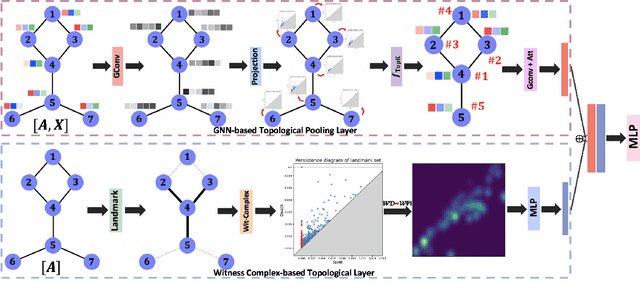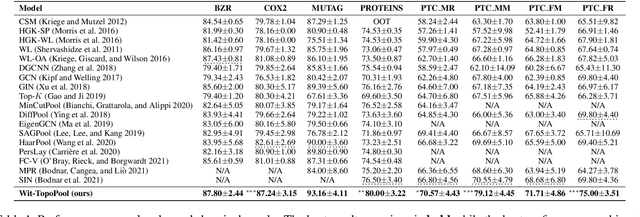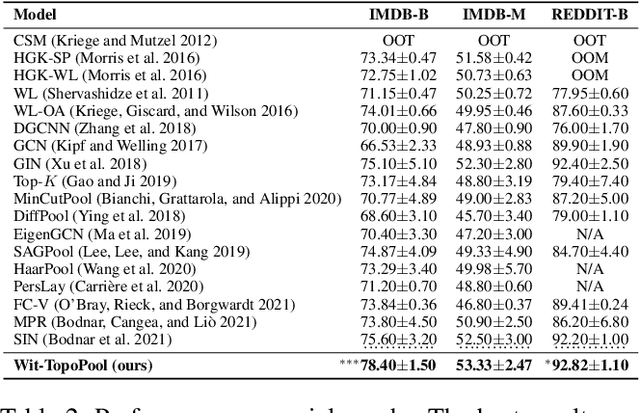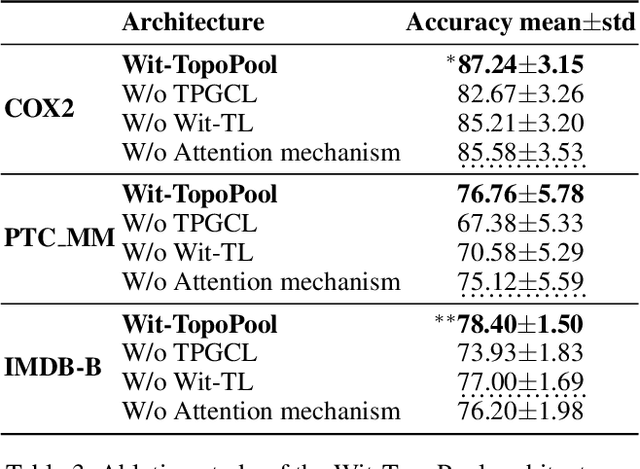Topological Pooling on Graphs
Paper and Code
Mar 25, 2023



Graph neural networks (GNNs) have demonstrated a significant success in various graph learning tasks, from graph classification to anomaly detection. There recently has emerged a number of approaches adopting a graph pooling operation within GNNs, with a goal to preserve graph attributive and structural features during the graph representation learning. However, most existing graph pooling operations suffer from the limitations of relying on node-wise neighbor weighting and embedding, which leads to insufficient encoding of rich topological structures and node attributes exhibited by real-world networks. By invoking the machinery of persistent homology and the concept of landmarks, we propose a novel topological pooling layer and witness complex-based topological embedding mechanism that allow us to systematically integrate hidden topological information at both local and global levels. Specifically, we design new learnable local and global topological representations Wit-TopoPool which allow us to simultaneously extract rich discriminative topological information from graphs. Experiments on 11 diverse benchmark datasets against 18 baseline models in conjunction with graph classification tasks indicate that Wit-TopoPool significantly outperforms all competitors across all datasets.
 Add to Chrome
Add to Chrome Add to Firefox
Add to Firefox Add to Edge
Add to Edge